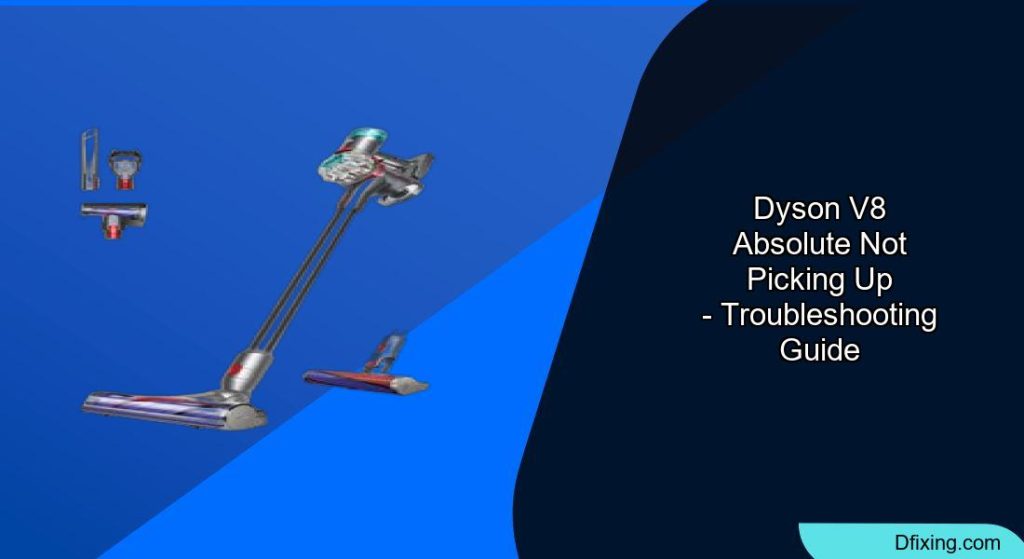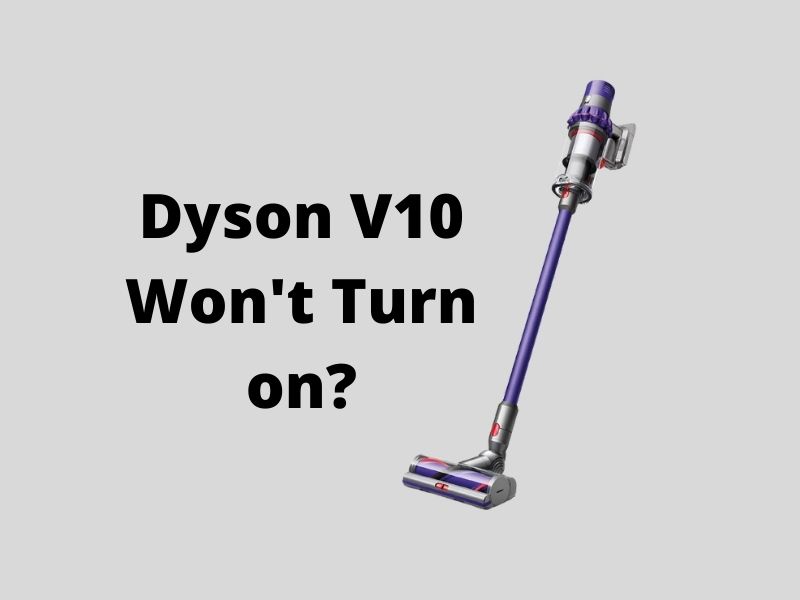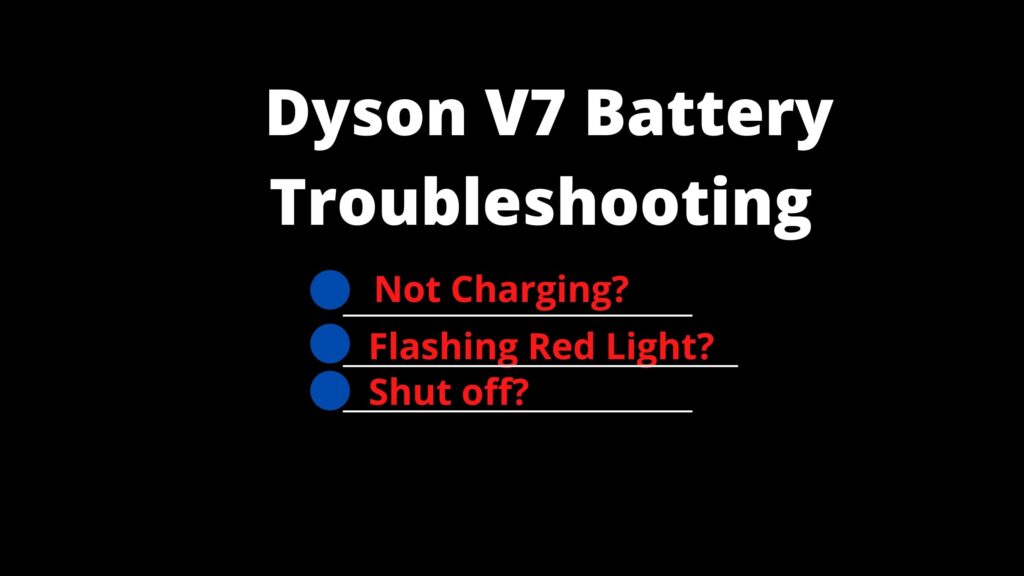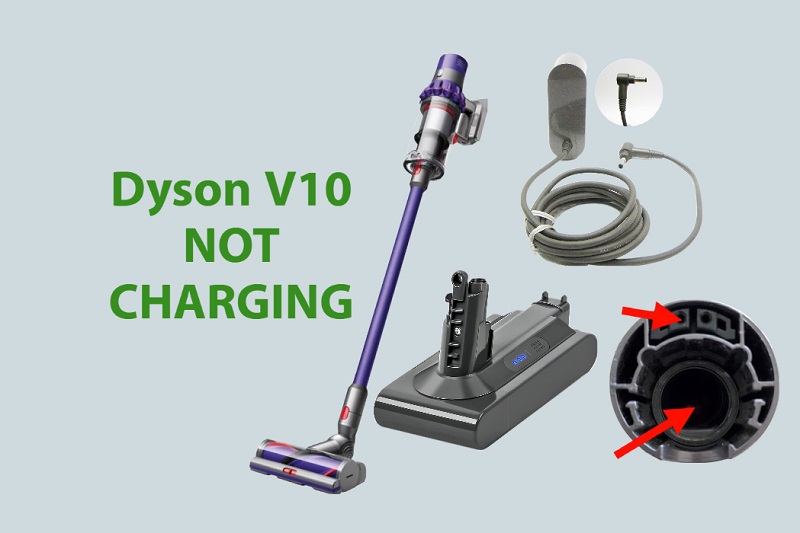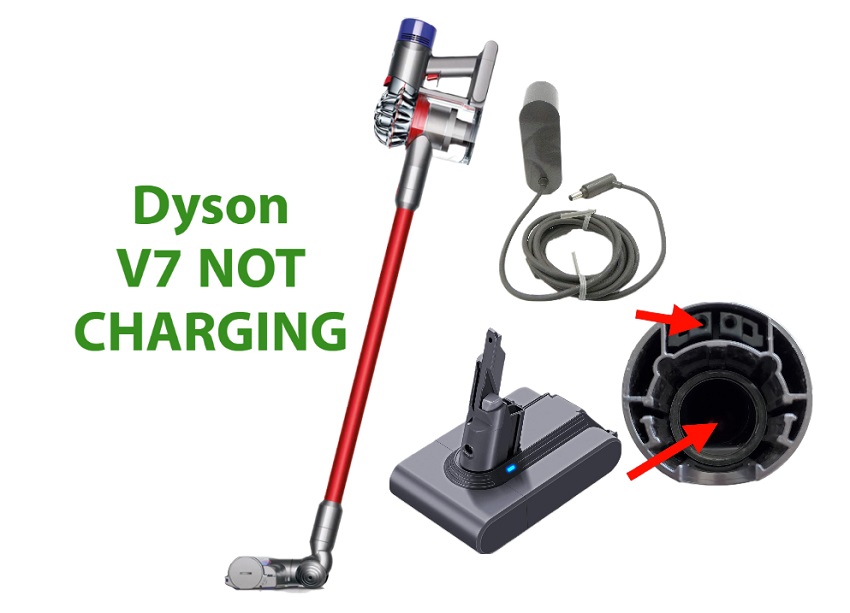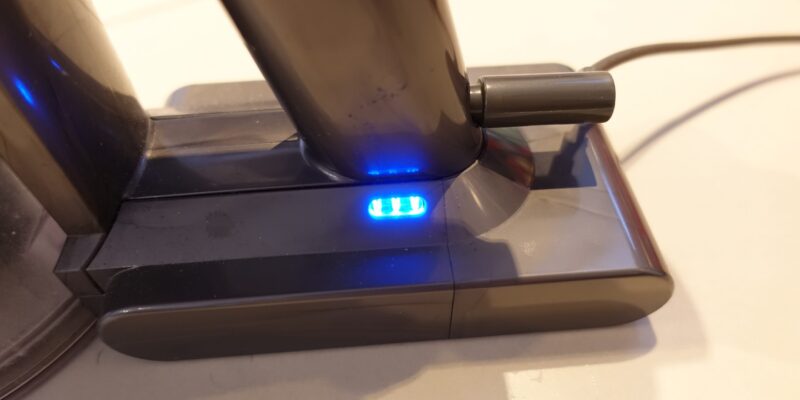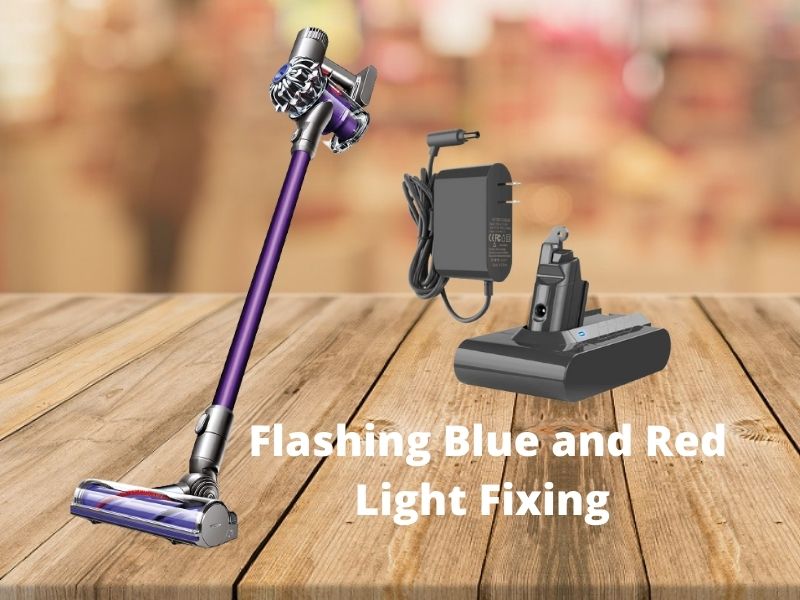When your Dyson V8 Absolute stops picking up debris effectively, it can be frustrating, especially considering its premium price point. This powerful cordless vacuum relies on consistent airflow and proper maintenance to function correctly. Several key symptoms might indicate a problem: weak suction at the cleaning head despite strong suction from the tube, pulsing during operation, a non-rotating brush bar, unusual noises, or complete failure to turn on or charge.
Affiliate disclosure: As an Amazon associate, We'll earn a commission for every successful order through our affiliate links in the article. However, you won’t be charged anything for this.
The good news is that most Dyson V8 suction issues can be resolved through proper troubleshooting and maintenance. In this comprehensive guide, we’ll walk through the most common causes of suction problems and provide step-by-step solutions to get your vacuum working like new again. Whether you’re dealing with clogged filters, blockages in the airflow path, or more complex issues with the electrical connections, we’ve got you covered with practical, easy-to-follow advice.
Common Causes of Poor Suction
Clogged Filters
The Dyson V8 Absolute has two main filters that require regular maintenance: the pre-motor filter (located at the top of the cyclone) and the post-motor filter (found at the back of the machine). When these filters become clogged with dust and debris, airflow is restricted, dramatically reducing suction power.
Signs of clogged filters include:
– Noticeable decrease in suction power
– Vacuum pulsing on and off during operation
– Machine running hotter than normal
– Shorter run time than expected
To clean your filters:
1. Remove the pre-motor filter from the top of the cyclone unit
2. Take out the post-motor filter from the back of the machine
3. Rinse both filters under cold water only (no soap or detergents)
4. Continue rinsing until the water runs clear
5. Squeeze out excess water gently
6. Allow both filters to air dry completely for 24-48 hours
7. Reinstall only when 100% dry
For optimal performance, clean the pre-motor filter monthly and the post-motor filter every 3-6 months. If your filters appear damaged or don’t improve suction after cleaning, replacement filters are relatively inexpensive and worth the investment.
If cleaning doesn’t restore suction, it’s time to replace the filters.
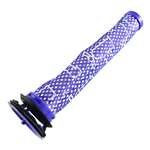
Official replacement for optimal filtration performance

High-efficiency filtration with long-lasting durability

Value pack for multiple filter replacements
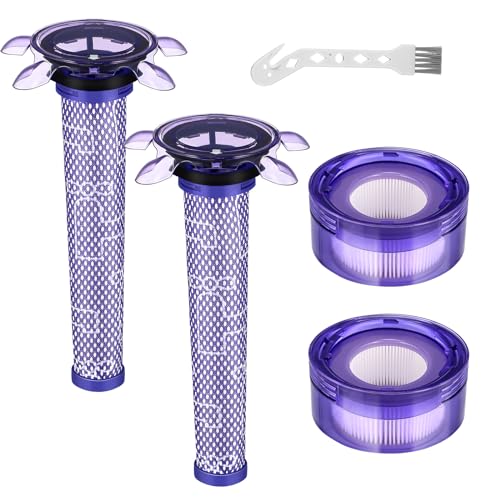
Premium filtration for newer Dyson models
Blockages in the Airflow Path
Blockages anywhere in the vacuum’s airflow path can significantly impact suction power. The Dyson V8’s slim design makes it particularly susceptible to clogs from larger debris.
Common blockage locations include:
– The cleaner head intake
– The wand (especially at connection points)
– The entrance to the bin
– Inside the cyclone assembly
– The small internal suction hose
To check for and clear blockages:
1. Disconnect all attachments from the main unit
2. Look through each section (wand, cleaner head, and bin entrance) for visible obstructions
3. Remove any debris using long, thin objects like a wooden dowel (avoid metal tools that could cause damage)
4. Pay special attention to the connection points where debris often accumulates
5. Check the small suction hose inside the vacuum for cracks or damage
Full or Improperly Sealed Dust Bin
A full dust bin or one with compromised seals can significantly reduce suction power and overall performance.
To address bin-related issues:
1. Empty the bin when contents reach the “MAX” line (for best performance, empty after each use)
2. To empty: hold the vacuum over a trash can, pull up on the red handle on top of the bin
3. For a deeper clean, press the additional red button inside to fully detach the bin
4. Clean the bin’s interior with a dry cloth or soft brush
5. Inspect the rubber seals around the bin for debris or damage
6. Check that the cyclone unit is properly seated when reattached
7. Ensure the bin clicks securely back into place
Brush Bar Problems
If your Dyson V8 Absolute has good suction at the wand but poor pickup on floors, the issue likely involves the brush bar in the cleaner head.
Common brush bar issues include:
– Hair and string wrapped around the bar
– Worn or damaged bristles
– Failed motor or belt
– Electrical connection problems between the main unit and cleaner head
To troubleshoot and fix brush bar problems:
1. Turn the vacuum off and disconnect from power
2. Flip the cleaner head over and locate the end cap (marked with a coin symbol)
3. Use a coin or flathead screwdriver to rotate the cap counterclockwise
4. Remove the end cap and slide the brush bar out
5. Clear any hair, string, or debris wrapped around the bar
6. Clean the brush bar bristles with scissors and your fingers
7. Check for damage to the bar or drive belt
8. Reassemble and test the vacuum
If the brush bar is damaged or worn, consider replacing it.
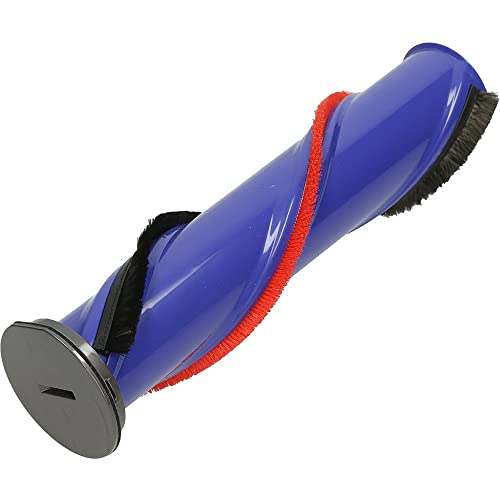
Official replacement for long-lasting performance
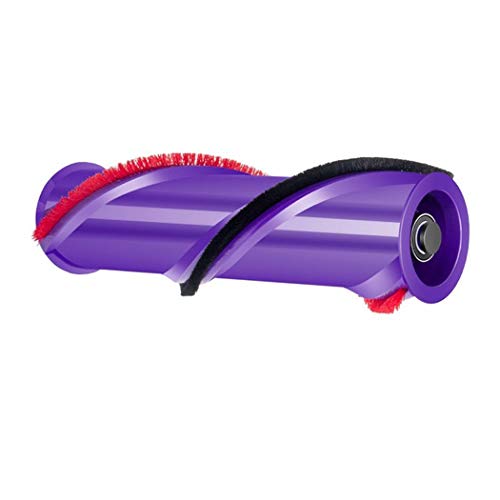
Cost-effective alternative with durable materials
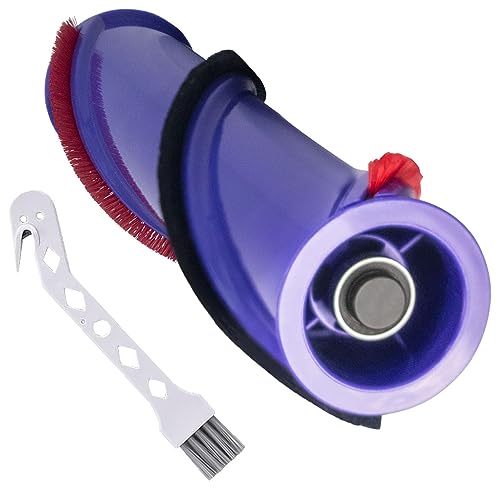
Enhanced cleaning with noise reduction features
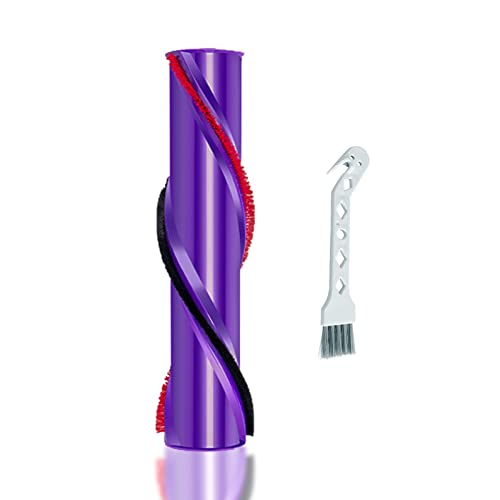
Budget-friendly option with cleaning brush included
Advanced Troubleshooting for Suction Issues
Resolving Pulsing Problems
When your Dyson V8 Absolute repeatedly cuts in and out (pulses), it’s usually activating its thermal protection system due to restricted airflow.
To fix pulsing issues:
1. Turn off the vacuum and unplug from charging
2. Clean both filters as described earlier
3. Empty and clean the dust bin thoroughly
4. Check for blockages throughout the entire airflow path
5. Inspect the rubber seal inside the bin for debris
6. Clean electrical connectors with a cotton swab and rubbing alcohol
7. Allow the vacuum to cool completely before restarting
8. Ensure the battery is fully charged
If pulsing continues after these steps, check for less obvious blockages in the wand. Some users report success after removing small bits of debris or fuzz from the wand connection points that weren’t immediately visible.
Fixing Non-Rotating Brush Bars
When the brush bar fails to rotate despite the vacuum running normally, the issue often lies in the electrical connection between the main unit and the cleaner head.
Follow these steps to resolve the problem:
1. Press the release button on the canister and twist it off from the vacuum motor
2. Examine the electrical connectors inside the canister
3. Clean the electrical leads inside the canister with a cotton swab and rubbing alcohol
4. Clean the connector interface where leads connect to the brush head
5. Remove all lint, dust, and debris from these connections
6. Check that the brush head rotates freely when turned manually
7. Reassemble the unit, ensuring the front tab aligns properly
8. Test the brush bar function
If cleaning the connections doesn’t resolve the issue, the problem might be with the brush bar motor or its control board, which may require professional repair.
Addressing Unusual Noises
Unusual sounds during operation often indicate a mechanical problem or foreign object caught in the vacuum.
To troubleshoot strange noises:
1. Turn off the vacuum immediately
2. Check the cleaner head for obstructions or damage
3. Remove the brush bar and inspect for wrapped hair or debris
4. Examine the cyclone unit for loose objects
5. Check the bin for objects that might be rattling around
6. Listen carefully to locate the source of the noise
7. Inspect fan blades (if visible) for damage or obstructions
If you can’t identify the source of the noise or if it persists after cleaning, professional service may be needed as internal components could be damaged.
Suction Issues Without Visible Clogs
Sometimes suction problems occur despite no obvious blockages or filter issues. In these cases, check these often-overlooked areas:
Changeover Valve Issues:
- Locate the valve at the back of the machine
- Manually flip it to ensure it moves freely
- Remove any debris using needle-nose pliers
Damaged Suction Hose:
- Inspect the small internal suction hose for cracks or damage
- Look for disconnections or poor seating of the hose
- Loose Attachments:
- Ensure all attachments, including the small tube with a red cap, are securely connected
- Verify the red strip on attachments is intact
- Clean the electrical connections on powered attachments
Battery and Charging Troubleshooting
Dyson V8 Not Charging
If your vacuum won’t charge, try these solutions:
- Check Connections:
- Ensure the vacuum is correctly seated on the dock or properly plugged in
- Verify the power outlet works by testing with another device
- Inspect the charging cable for damage
- Check the plug fuse isn’t blown
If the charging cable is damaged, replace it.
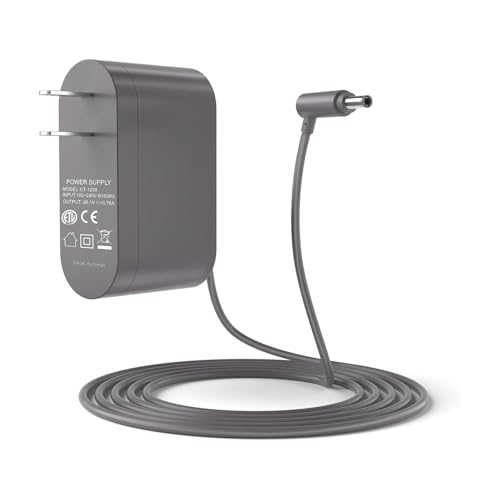
Budget-friendly with 18-month warranty and safety certifications

Safety-certified with dual protection and LED charging status
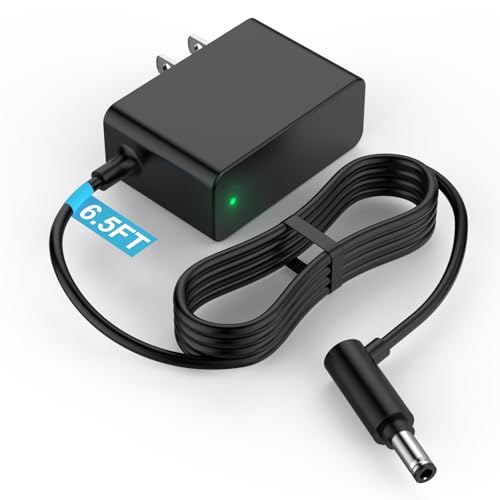
Night-charge visibility with accelerated charging technology
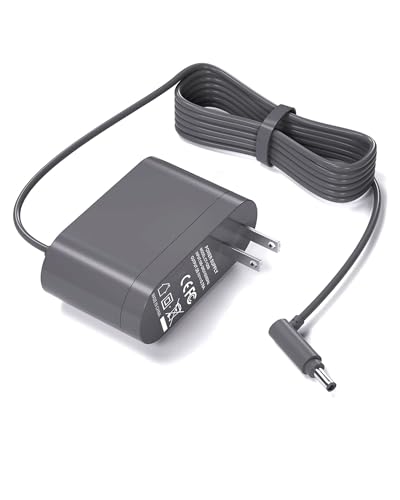
Premium option with comprehensive safety and extended warranty
- Battery Not Holding Charge:
- Consider battery degradation if the vacuum is several years old
- Avoid exposing the vacuum to extreme temperatures
- Prevent completely draining the battery between charges
- Replace with an original Dyson V8 battery if necessary
If the battery is old and not holding charge, it’s time for a replacement.

Genuine Dyson replacement battery with reliable performance and extended runtime

High-capacity battery with 60+ minutes runtime and enhanced filtration system
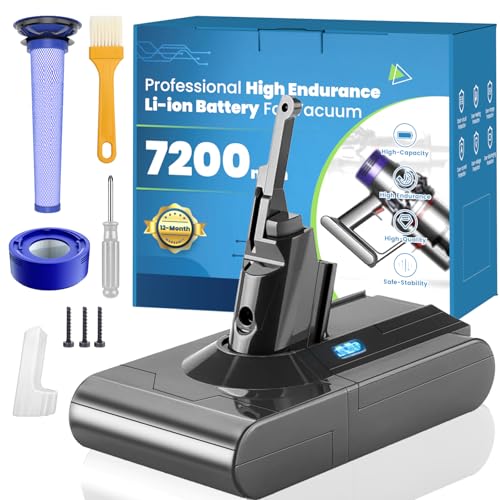
Upgraded high-voltage battery with built-in safety protection and extended runtime

Affordable replacement with LED power display and environmental certifications
- No Charging Light:
- Try a different charging cable or outlet
- Check all connections are secure and clean
-
If the issue persists, the motherboard or charging port may need professional repair
-
Flashing Red Light While Charging:
- Unplug and allow the vacuum to cool for 15-30 minutes
- Try charging again after cooling
-
Consider battery replacement if the problem continues
-
Flashing Blue Light:
- This normally indicates low battery and needs charging
- Connect to the charging dock or cable
- Allow approximately 5 hours for a full charge
Preventative Maintenance for Optimal Performance

Regular maintenance is crucial for keeping your Dyson V8 Absolute working efficiently:
- Empty the bin after each use (or when it reaches the MAX line)
- Wash the pre-motor filter monthly and the post-motor filter every 3-6 months
- Remove and clean the brush bar every 1-2 months, depending on usage
- Check for blockages whenever you notice reduced suction
- Clean the cyclone unit by tapping or vacuuming out accumulated debris
- Inspect seals and gaskets regularly for damage or debris
- Clean electrical connections between attachments periodically
- Store in a cool, dry place away from extreme temperatures
For deep cleaning:
1. Use a small paintbrush to clean inside the main body
2. Pay special attention to the motor area and seals
3. Lift the screen by pressing the red buttons on either side
4. Clear any hair or debris from the seals
5. Wipe the cleaner head window with a damp cloth if applicable
Frequently Asked Questions (FAQ)
Why does my Dyson V8 keep pulsing on and off?
Pulsing typically indicates restricted airflow causing the vacuum to overheat. The most common causes are clogged filters, blockages in the airflow path, or a full dust bin. Clean both filters thoroughly, check for blockages throughout the machine, and ensure the dust bin is empty and properly sealed. If the problem persists, check for less obvious blockages in the wand connection points or consider a battery issue.
How do I know if my Dyson V8 battery needs replacing?
Signs that your battery needs replacing include significantly reduced run time (less than 10 minutes on normal mode), failure to hold a charge, the vacuum shutting off unexpectedly during use, or the battery becoming very hot during charging. Most Dyson V8 batteries last 2-3 years with regular use before needing replacement. If your vacuum is still under warranty, contact Dyson for potential free replacement.
Why is my Dyson V8 brush bar not spinning?
The brush bar may stop spinning due to hair/debris entanglement, electrical connection issues, or a motor problem. First, remove the brush bar and clean it thoroughly. Next, clean the electrical connections between the main unit and cleaner head using rubbing alcohol and cotton swabs. If these steps don’t resolve the issue, the brush bar motor may have failed and require professional repair or replacement.
How often should I clean my Dyson V8 filters?
For optimal performance, the pre-motor filter should be cleaned monthly and the post-motor filter every 3-6 months. However, if you vacuum very dusty areas or have pets, you may need to clean them more frequently. Always allow filters to dry completely (24-48 hours) before reinstalling them, and consider having a spare set to use while the others are drying.
Can I wash the cyclone unit of my Dyson V8?
No, the cyclone unit should not be washed with water. Instead, tap it gently to dislodge debris or use another vacuum with a soft brush attachment to clean it. If the cyclone unit becomes heavily soiled, you can wipe it with a slightly damp cloth, but ensure it’s completely dry before reassembling. Water damage to the cyclone unit can affect the vacuum’s performance and potentially void the warranty.
Conclusion
The Dyson V8 Absolute is a powerful and versatile vacuum that can provide years of reliable service with proper maintenance. Most suction problems can be resolved through regular cleaning of filters, checking for blockages, and proper care of the brush bar and electrical connections.
By following the troubleshooting steps outlined in this guide, you can diagnose and fix most common issues that affect your vacuum’s suction power. Remember that preventative maintenance is key to avoiding problems in the first place—regular emptying of the bin, cleaning of filters, and inspection for blockages will keep your Dyson V8 performing at its best.
If you’ve tried all the suggested solutions and your vacuum still isn’t functioning properly, it may be time to consult Dyson’s customer support or seek professional repair services. With proper care and occasional troubleshooting, your Dyson V8 Absolute should continue to deliver the powerful suction performance it was designed for.

